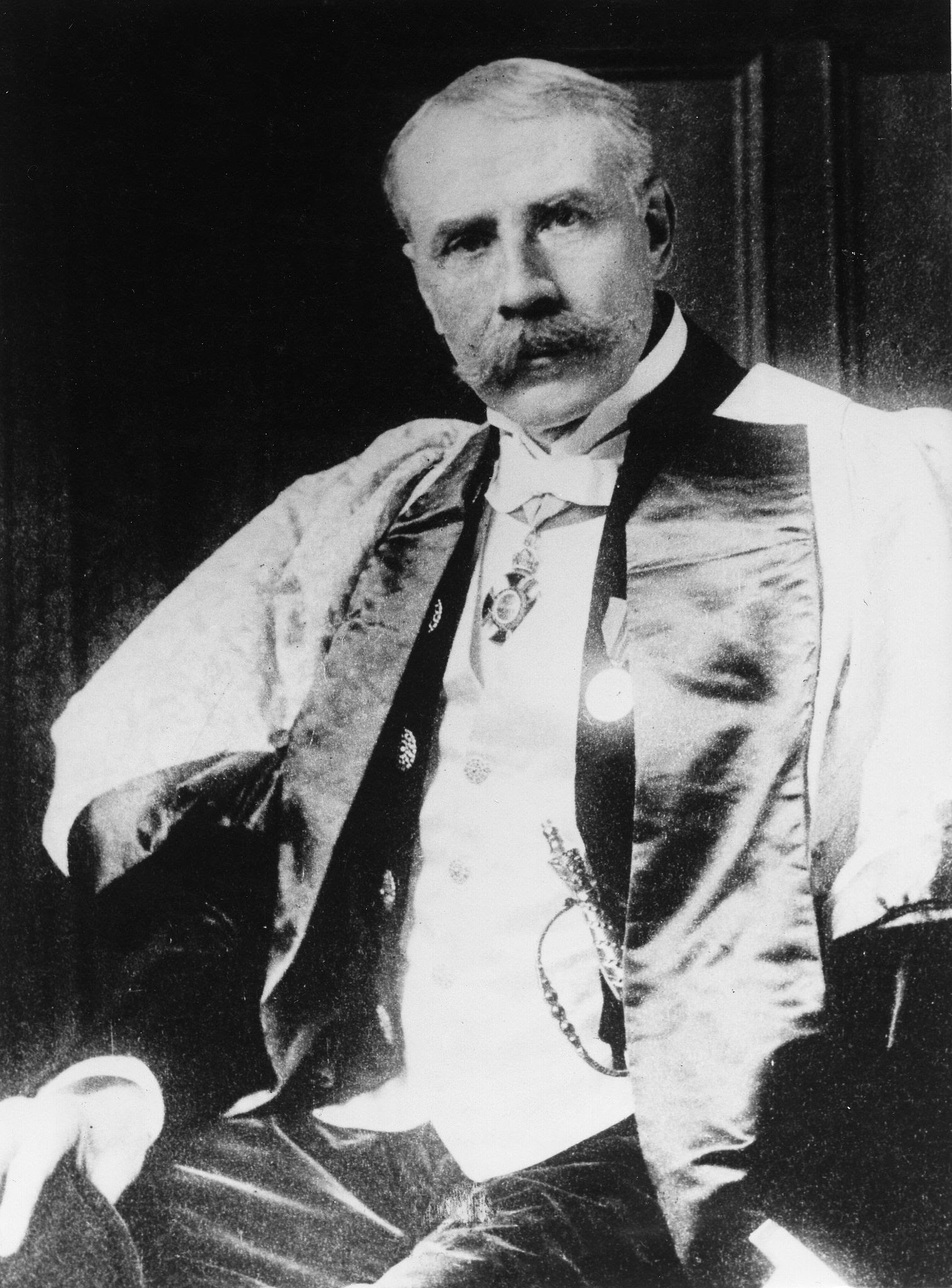Sir Edward Elgar (born June 2, 1857, Broadheath, Worcestershire, England—died February 23, 1934, Worcester, Worcestershire) was an English composer whose works in the orchestral idiom of late 19th-century Romanticism—characterized by bold tunes, striking color effects, and mastery of large forms—stimulated a renaissance of English music.
The son of an organist and music dealer, Elgar left school at age 15 and worked briefly in a lawyer’s office. He was an excellent violinist, played the bassoon, and spent periods as a bandmaster and church organist. He had no formal training in composition.
He produced several large choral works before composing in 1898–99 the popular Enigma Variations for orchestra. The variations are based on the countermelody to an unheard theme, which Elgar said was a well-known tune he would not identify—hence the enigma. Repeated attempts to discover it have been unsuccessful. All but the last of the 14 variations refer cryptically to friends of Elgar, the exception being his own musical self-portrait. This work brought Elgar recognition as a leading composer and became his most frequently performed composition.
The first English composer of international stature since Henry Purcell (1659–95), Elgar is esteemed both for his own music and for his role in heralding the 20th-century English musical renaissance.

